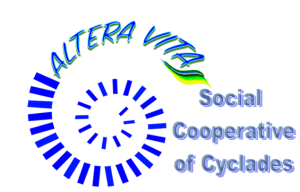Introduction
Accessible Smart Tourism
Understanding the Core Concept
Accessible smart tourism represents the convergence of two powerful concepts: smart tourism —which leverages digital technologies to enhance visitor experiences, optimize destination management, and improve service delivery—and accessible tourism, which ensures that all individuals, regardless of physical, sensory, or cognitive abilities, can participate fully in travel and tourism activities.
The central objective of this module is to explore how technology, policy, collaboration, and innovation can be harnessed to create inclusive, barrier-free tourism environments. The ultimate goal is clear: tourism for all, on equal terms.
This is not just a matter of fairness—it's a legal, ethical, and economic imperative. With over 100 million people with disabilities living in the European Union, accessible tourism opens up a vast market while promoting dignity, independence, and social inclusion.
Why Accessibility Matters in Smart Tourism
Tourism is one of the most dynamic and diverse sectors globally, yet it often presents hidden barriers for people with disabilities. These may include physical obstacles, lack of information in accessible formats, inadequate transport, or exclusion from cultural experiences.
Smart tourism, powered by digital tools and intelligent systems, offers a transformative opportunity to remove these barriers. Through mobile apps, QR codes, AI-driven services, online platforms, and inclusive urban planning, destinations can become more navigable, informative, and welcoming.
However, technology alone is not enough. Real progress requires:
- Awareness and training among tourism professionals
- Dissemination of best practices
- Innovation in accessibility solutions
- Collaboration between governments, businesses, and civil society
- Support for pilot projects and scalable models
Key Learning Outcomes
By the end of this module, learners will be able to:
- Understand the principles and importance of accessible tourism.
- Identify how smart technologies can enhance accessibility in tourism settings.
- Explore real-world case studies and good practices across Europe.
- Use online tools and platforms (such as Pantou, SAGE Travelling, Turismabile) to find and promote accessible tourism offerings.
- Recognise the role of European initiatives and awards (e.g., Access City Award, Smart Tourism Capitals, AccessibleEU) in advancing accessibility.
- Reflect on emergency preparedness and digital communication for tourists with disabilities.
Structure of the Module
This module is structured into several key sections, each focusing on different aspects of accessible smart tourism:
1. Foundations of Accessible Tourism
- Definitions and scope
- Legal frameworks (e.g., UN Convention on the Rights of Persons with Disabilities, European Disability Strategy)
- Market potential and ethical considerations
2. Smart Technologies Enabling Accessibility
- Mobile apps like VIP Code Reader and NaviLens Go
- Digital guides, sign language videos, and interactive maps
- Smart infrastructure in public spaces and museums
3. Online Platforms and Directories
- Exploring tools like:
- Pantou.org – an online directory of accessible tourism services
- SageTraveling.com – expert-led accessible trip planning
- Turismabile.it – local accessibility platform in Italy
4. Good Practices and Case Studies
- Sit&Enjoy Project (Taranto, Italy): art benches with QR codes
- Vienna and other winners of the Access City Award
- Best practices from Smart Tourism Capital nominees
5. European Initiatives and Networks
- AccessibleEU Centre
- European Network for Accessible Tourism (ENAT)
- AccessibleEU Community of Practice
6. Emergency Preparedness and Communication
- Tourist alert systems
- Electronic traveler registries
- Mobile apps for crisis response (e.g., Spain’s Registro de Viajeros )
Why This Module Is Important
As the world becomes increasingly digital and interconnected, ensuring that no one is left behind in tourism has never been more urgent. This module equips learners with the knowledge, tools, and inspiration to make tourism more inclusive, innovative, and sustainable .
It highlights that accessibility is not a limitation but an opportunity —to build better experiences, reach wider audiences, and contribute to a more equitable society.
Final Thought
In the words of the European Commission:
"Accessibility improves the quality of life of everyone, but it is indispensable for persons with disabilities to have equal access to fundamental rights."
This module invites you to reflect on how smart tourism can be truly smart only when it is inclusive.
